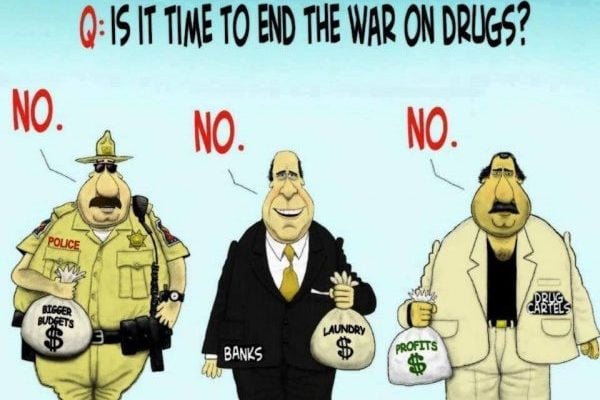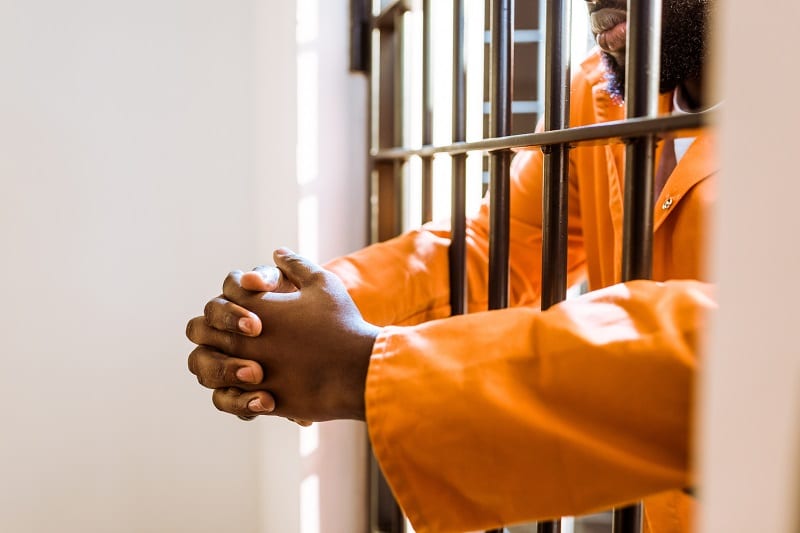Zakary Pereira: It’s long past time to end the War on Drugs
The War on Drugs has shaped every American’s life in one way or another for almost half a century. Most historians today recognize that the War on Drugs that began in 1971 was an effort on behalf of the Nixon administration to stymie the hippie and civil rights movement born out of the 1960s Counter-culture revolution. Since then, this campaign
October 24, 2018, 2:52 pm
By Zakary Pereira
The War on Drugs has shaped every American’s life in one way or another for almost half a century. Most historians today recognize that the War on Drugs that began in 1971 was an effort on behalf of the Nixon administration to stymie the hippie and civil rights movement born out of the 1960s Counter-culture revolution. Since then, this campaign has been continually used by political figures to suppress certain demographic groups in the country, fund revolutionaries favorable to the US in foreign countries, and erode the civil liberties of American citizens. In the times we live in today, it is unacceptable that this remnant of our checkered past should continue to shape the political, social and judicial futures of millions of families.
To understand the systemic devastation of the War on Drugs, one must be aware of the ‘Southern Strategy’ implemented by the Republican Party during and after the Nixon years. This electoral strategy hinged on disenfranchising black voters and strengthening Jim Crow laws in the South to favor the white, particularly Christian and male, population and power-base following the Civil Rights Movement. The War on Drugs was used as an effective tool in this playbook; marijuana and crack cocaine use in communities of color became the prime motive to incarcerate and patrol these neighborhoods. In later years, mandatory sentencing legislation in the 1980s further punished particularly young men of color for non-violent drug offenses.
The United States also has a checkered past with funding revolutions and dictators in countries around the world, particularly in Central and South America. Several examples of this intervention includes funding the Contras in Nicaragua with CIA drug money and the invasion of Panama in 1989 when our toleration of Noriega’s drug-trafficking activities became public. The violent drug cartels to our South are strongly fueled and funded from drug sales on the United States black market. Marijuana prohibition, like the alcohol prohibition era in the early 20th century, has resulted in a vast and dangerous black market in the United States, this time controlled by drug cartels and corrupt government agencies instead of Al Capone and his mobster buddies.
Today in our country we are facing a drug epidemic that has touched almost every family or workplace, including my own. I am speaking of the heroin epidemic and the increase of fentanyl and other potent opioids on the streets of America. Fueled by a desire for profit, large drug companies and manufacturers have pushed addictive pain killers to patients at the expense of their long-term health in tandem with doctors across the country. Raw and unregulated fentanyl and other drugs come ashore from China to fill the demand for opioids on the black market. Several states such as Florida, Texas, Massachusetts and even Rhode Island have filed lawsuits against these drug companies, and law enforcement agencies have taken steps to detect packages in customs that could contain opioids. It will take more than a few lawsuits and package screenings to combat the opioid problem; however, these are concrete first steps.
I cannot finish this editorial without mentioning the violation of civil liberties resulting from the failed War on Drugs. I find it absurd that smoking a joint on your own property while not harming anyone else could land a person in jail. While federal study of marijuana is limited because of its Schedule I status, there have been reports that tobacco and alcohol are both more dangerous substances than marijuana, and both are legally sold and regulated to those of age who wish to consume them. As an adult, one should be able to smoke a cigarette, drink a beer or puff a joint without fear of arrest as long as one does not pose a danger to others. People consume foods and substances that are harmful to their health; it does not mean we should incarcerate people for it. The sad reality is that the War on Drugs has been used to jail and separate black and Latino men from their families and communities for decades. We must end the War on Drugs and commute the sentences of all non-violent drug offenders who are currently serving their sentences.
As you have now reviewed or perhaps learned the impact of this policy for the first time, it is important to understand where our country goes from here. The recent outburst by attorney general candidate Alan Gordon at North Kingstown High School and arrest of him and his partner, gubernatorial candidate Anne Armstrong for possessing and growing large quantities of marijuana in Rhode Island last week pushed me to write this piece. While I do not excuse the previous actions and words of either Mr. Gordon or Ms. Armstrong, I do believe such recent events warrant a larger discussion of these issues. We cannot simply end the War on Drugs and wash our hands of it; we must rectify the injustices it has brought to millions of working families. To do this we must:
- Remove marijuana from the Schedule I list at the Federal level
- Decriminalize and legalize possession and use of marijuana in every state
- Commute the sentences of non-violent drug offenders
- Begin treating addiction as a health problem, instead of a crime
- Transition from a focus of incarceration to rehabilitation
Together, we must also push forward and expand our healthcare system to not only include everyone, but to also cover robust mental healthcare and addiction-care and services. Imprisonment has not solved the drug crises in this country, so why would we continue to double-down on failed policies that have destroyed millions of American families? By writing letters, voting, and talking to your local and state representatives and community members, together we can overturn this failed and oppressive policy.







